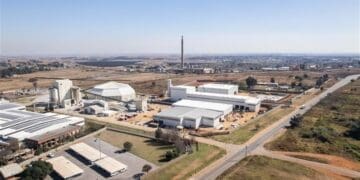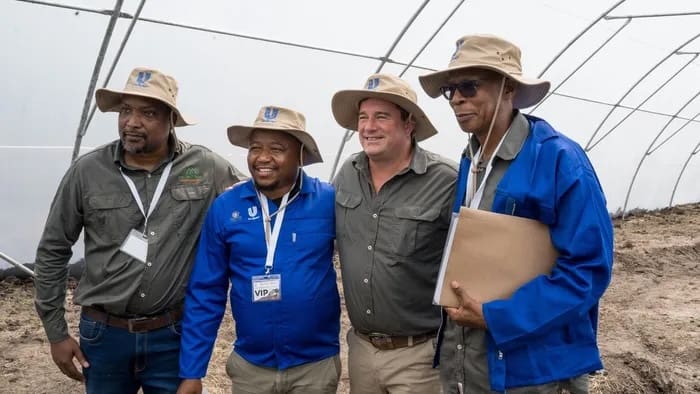In a bold move to revitalise rural agriculture and integrate smallholder farmers into formal supply chains, Unilever South Africa, in partnership with the National Department of Agriculture (DOA) and the KwaZulu-Natal Department of Agriculture and Rural Development (DARD), has officially launched the Jozini Smallholder Farmer Programme.
The initiative aims to boost sustainable crop production, uplift rural livelihoods, and empower small-scale farmers in the Jozini region.
“We are launching a project that we have been working on for many, many years,” said Justin Apsey, CEO of Unilever South Africa. “This initiative will not only improve the livelihoods of smallholder farmers but also contribute to a more sustainable agricultural sector.”
A total of 97 farmers from the Ndumo village in Jozini graduated with AgriSETA-accredited certificates, following intensive training supported by Unilever and its partners. Out of the original 100 participants, three found permanent employment before completing the programme. Remarkably, 67% of the graduates are youth and 66% are women.
The graduation ceremony also saw the symbolic handover of agricultural tunnels and tractors to support the farmers’ productivity going forward.
Speaking at the launch, Minister of Agriculture John Steenhuisen praised the role of smallholder farmers in food security and inclusive economic growth.
“The products that such smallholder farmers are producing are finding their way onto tables and into products across the country. This is exactly the value chain in action,” he said. “I take my hat off to Unilever. They’ve not only invested capital, but the heart and soul of their company into these producers.”
Graduate Skhumbuzo Mpontshane reflected on his journey with the programme. “I’m wearing this gown today because we started this project in 2021. I’ve learnt a lot about crop production and farming processes.
Unilever is helping us access markets to sell our produce. I hope more young farmers take up opportunities like this.”
Janine Van Rooyen, Director of the Foods Business Unit at Unilever Southern Africa, said the company began its localisation drive years ago, with 70% of product ingredients now sourced locally.
“We wanted to see how we could partner with small farmers in rural areas,” she said. “We got involved because they can’t break into the industry on their own—it’s really tough. We’ve done the groundwork with partners to help them. Now they’re growing chillies, which we’ll use in our Robertson’s spices and other products. Hopefully, one day, we can export them.”



























































